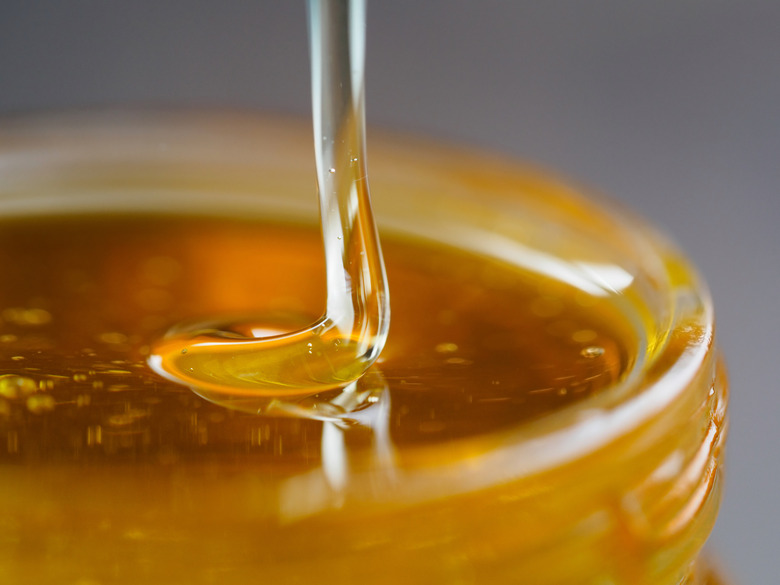Does Viscosity Increase With The Size Of The Molecule?
Viscosity is a measure of a fluid's resistance to flow. Several factors affect viscosity, including the size of a molecule. Each time you pour syrup over pancakes or add honey to tea, you witness the relationship between molecule size and viscosity.
TL;DR (Too Long; Didn't Read)
A liquid with smaller molecules has a lower viscosity than a liquid with larger molecules because smaller molecules slide past each other more easily.
The Viscosity Scale
The Viscosity Scale
Scientists use a virtual scale to classify all materials from solid to liquid. Solid materials are described as elastic and liquids as viscous. Most materials in everyday life are viscoelastic materials, meaning they are neither completely elastic nor entirely viscous. A material can be a viscoelastic solid, like viscous solids that have some elasticity, such as sweet jelly, or a viscoelastic liquid, like viscous fluids that have some elasticity, such as a yogurt drink or a shower gel.
Internal Friction of Moving Fluid
Internal Friction of Moving Fluid
Viscosity describes the internal friction of a moving fluid. A fluid with large viscosity repels motion because the way its molecules are structured creates a lot of internal friction. On the other hand, a fluid with low viscosity flows easily because the way its molecules are structured results in very little friction. For example, imagine you have a cup of honey and a cup of water. If you turn both cups upside down, the water drains much more quickly than the honey. This is because the molecular makeup of water gives it very little friction when it is in motion, while the molecular makeup of honey gives it a lot of internal friction.
Small Molecules vs. Large Molecules
Small Molecules vs. Large Molecules
The internal friction from large molecules often results in congestion. Smaller molecules slide past each other more easily than larger molecules do. In the honey/water example, the larger molecules in honey can get "stuck," which stops the substance moving freely out of the cup. Larger molecules also have stronger intermolecular forces, such as London Forces, which connect them to one another with greater power. This inhibits molecular flow, resulting in higher viscosity.
Other Relevant Factors
Other Relevant Factors
As well as the size of the molecule, a substance's viscosity is affected by external force, which can be all types of actions, such as pushing, pulling, wiping or gravity. The strength and duration of the external force can further increase or decrease the viscosity. A drop in temperature increases viscosity because molecules move more slowly at lower temperatures.
Cite This Article
MLA
Gillespie, Claire. "Does Viscosity Increase With The Size Of The Molecule?" sciencing.com, https://www.sciencing.com/viscosity-increase-size-molecule-13388/. 11 April 2018.
APA
Gillespie, Claire. (2018, April 11). Does Viscosity Increase With The Size Of The Molecule?. sciencing.com. Retrieved from https://www.sciencing.com/viscosity-increase-size-molecule-13388/
Chicago
Gillespie, Claire. Does Viscosity Increase With The Size Of The Molecule? last modified March 24, 2022. https://www.sciencing.com/viscosity-increase-size-molecule-13388/
